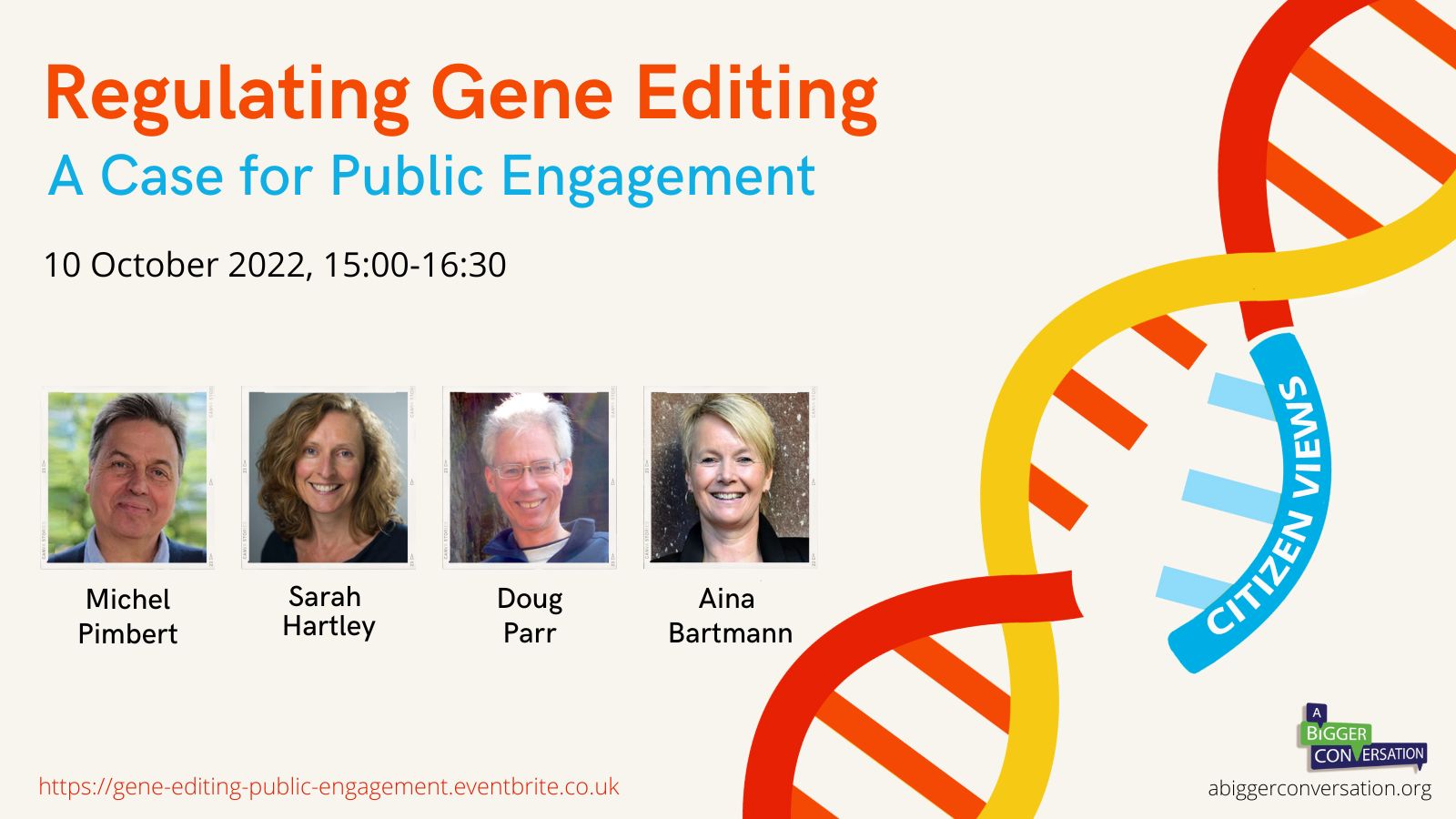Ongoing reviews of the way we regulate the products of genetic engineering in agriculture have shone a light on the governance of GMOs, the limited pool of stakeholders that are generally consulted and the urgent need for wider and more meaningful stakeholder consultation.
In the UK, the EU and elsewhere, citizen involvement remains peripheral and elusive. With this webinar we aim to explore the question of where citizen engagement fits into concepts of good governance and ask, if it is essential then how do we implement it? Our panel of expert speakers have first-hand knowledge of the possibilities and challenges of incorporating public perspectives into the regulation of agricultural genetic engineering. Join us for this timely and important discussion.
Speakers
Michel Pimbert
Professor Pimbert is the Director of the Centre for Agroecology, Water and Resilience at Coventry University. An agricultural ecologist by training, he has an interest in establishing inclusive governance of food systems where farmers and other citizens play a central role in designing and implementing food and agricultural policies. This, he believes, is not just a matter of equity or social justice. A widely published author, he has held positions with, amongst others, the UK-based International Institute for Environment and Development (IIED), the International Crops Research Institute for the Semi Arid Tropics (ICRISAT) in India, the University François Rabelais de Tours in France, and the World Wide Fund for Nature in Switzerland.
Sarah Hartley
Professor Hartley has a PhD in Politics and Environmental Studies with a specialisation in Public Policy from the University of Toronto 2005. Her research and teaching revolves around the responsible governance of science and emerging technologies, particularly the biotechnologies including GM insects, gene drive, and genome-editing. She has advised the House of Lords Select Committee on Science and Technology on GM insects, the Nuffield Council on Bioethics on genome-editing, and the Biotechnology and Biological Sciences Research Council on stakeholder engagement.
Doug Parr
Dr Parr is Chief Scientist and Policy Director at Greenpeace where his focus is the many issues surrounding science and policy, but particularly those around climate change and new technology including nanotechnology. Doug was the co-organiser of NanoJuryUK, an ‘upstream’ public engagement experiment involving open discussion of policies and developments in nanotechnologies through a deliberative jury process, which fed into the decisions of the UK government’s nanotechnology group.
Aina Bartmann
Aina is the general manager of GMO Nettverket, an umbrella organization for 18 organizations and companies in Norway. Norway is unique in that it takes lay perspectives into account in the assessment of GMOs and Aina is currently a member of the committee, appointed by the Norwegian government, which blends expert and lay perspectives in the assessment of the technological status and possibilities, regulatory frameworks, the need for independent research, and possible new risk aspects and ethical dilemmas surrounding agricultural genetic technologies.

